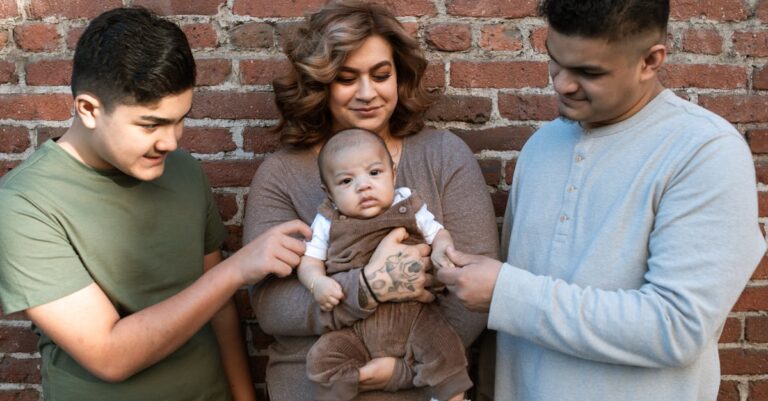When life feels like a rollercoaster that’s gone off the rails, rehab for young adults can seem like the only ticket back to sanity. It’s not just about kicking bad habits; it’s about rediscovering who they are beneath the chaos. Imagine trading late-night parties for late-night pizza with friends who actually care about them. Sounds like a win-win, right?
Table of Contents
ToggleOverview of Rehab For Young Adults
Rehabilitation programs for young adults address a range of issues, including substance abuse and mental health challenges. These services focus on healing individuals while guiding them toward healthier lifestyles. The primary goal involves helping them create meaningful connections with themselves and others.
Programs often incorporate evidence-based therapies and holistic approaches. Cognitive-behavioral therapy and group therapy sessions provide essential support. Mindfulness practices and life skills training play vital roles in personal development.
Structured environments within rehab facilities encourage accountability and foster growth. Young adults participate in daily activities and work on individual treatment plans. These plans focus on their unique needs and experiences.
Family involvement proves crucial in the rehab process. Programs frequently offer family therapy sessions, which strengthen communication skills and rebuild relationships. Building a supportive network enhances long-term recovery.
After completing rehabilitation, aftercare services help maintain progress. Ongoing therapy, support groups, and sober living environments offer continuous support. These resources encourage young adults to stay connected and engaged in their recovery journey.
Rehab for young adults emphasizes personal growth, connection with others, and a commitment to a healthier lifestyle. Participants gain valuable skills and insights that empower them to overcome challenges and pursue fulfilling lives.
Types of Rehabilitation Programs
Rehabilitation programs come in various forms, each tailored to meet the unique needs of young adults facing personal challenges. These programs aim to promote recovery and personal growth through structured support.
Inpatient Rehab
Inpatient rehab immerses young adults in a controlled environment that prioritizes healing. Participants reside at the facility, allowing them to focus solely on recovery. A typical program lasts 30 to 90 days and includes intensive therapy sessions and educational workshops. This approach helps individuals build coping skills while fostering accountability. Support from healthcare professionals is constant, ensuring a safe space for emotional and mental exploration. Family therapy also plays a role, enabling loved ones to participate in the recovery process.
Outpatient Rehab
Outpatient rehab offers flexibility, allowing young adults to receive treatment while continuing with their daily lives. This option often involves regular counseling sessions and group therapy, which can take place several times a week. Individuals can apply skills learned in therapy within their daily environments, promoting real-world application of coping strategies. However, this option requires a strong commitment, as participation is crucial for progress. Maintaining accountability through regular check-ins with counselors helps reinforce personal growth and development during the recovery journey.
Importance of Tailored Approaches
Tailored approaches in rehab for young adults address unique needs effectively. Customization enhances engagement, improving success rates.
Individualized Treatment Plans
Individualized treatment plans ensure each participant receives the specific care necessary for their situation. Assessment tools determine vulnerabilities, therapeutic preferences, and personal goals. These plans incorporate various therapies, including cognitive behavioral therapy, group sessions, and holistic approaches. Regular updates to treatment strategies enhance responsiveness to progress. Continuous evaluation allows for adjustments based on behavior changes or emerging concerns.
Family Involvement
Family involvement serves as a cornerstone of successful rehabilitation. Engaging family members fosters a supportive environment crucial for recovery. Therapy sessions and educational workshops equip families with tools to communicate effectively and understand addiction’s impact. Open dialogues encourage emotional healing and stronger relationships. Structured family programs promote accountability and reinforce the young adult’s commitment to change. Integration of family support significantly increases the likelihood of a lasting recovery.
Challenges Faced by Young Adults
Young adults encounter numerous challenges that can complicate their paths to recovery. Addressing these difficulties is crucial for successful rehabilitation.
Societal Pressures
Societal expectations create immense pressure on young adults. They often feel compelled to achieve certain milestones quickly, like obtaining degrees or establishing careers. This urgency can lead to poor choices that compromise their well-being. Peer influence plays a significant role, where friends might engage in risky behaviors such as substance use. Young adults frequently grapple with feelings of inadequacy when they perceive themselves as not living up to societal standards. The constant comparison to others on social media further exacerbates these pressures, contributing to anxiety and low self-esteem.
Mental Health Issues
Mental health challenges are prevalent among young adults. Conditions like anxiety and depression often emerge during this life stage, affecting their overall functioning. These issues can stem from various sources, including academic stress or relationship struggles. Difficulties with emotional regulation frequently accompany mental health problems, making it harder to cope with life’s demands. Young adults may turn to substances as a form of self-medication, worsening their mental health. Addressing these mental health issues within rehabilitation is vital for achieving sustainable recovery and personal growth.
Success Stories and Positive Outcomes
Numerous young adults emerge from rehab with renewed hope and purpose. Success stories often highlight individuals who transformed their lives through dedicated efforts and support systems. Many participants report significant improvements in their mental health, leading to enhanced overall well-being. Engaging in meaningful connections replaces earlier harmful behaviors, fostering healthier relationships.
Data from various rehab programs indicate that over 70% of young adults experience positive outcomes after completing treatment. Participants frequently revisit their goals, establishing plans that align with their aspirations and support long-term recovery. Tailored treatment plans play a crucial role, enabling responses to specific challenges and facilitating personal growth.
Success rates often correlate with family involvement in the recovery process. Families that engage in therapy together strengthen bonds and improve communication, contributing to the positive experiences of young adults in rehab. By building support systems, young adults gain the confidence to pursue healthier lifestyles.
Aftercare services create a safety net for those transitioning back to daily life. Continued support through counseling and group sessions significantly reduces the risk of relapse. Many individuals find that ongoing guidance allows them to maintain progress and face life’s challenges with resilience.
Stories of recovery emphasize the impact of evidence-based therapies and holistic approaches. Young adults utilizing cognitive behavioral therapy report increased coping skills and decreased anxiety levels. Alternative therapies, such as yoga and mindfulness practices, contribute to emotional healing and self-discovery.
Transformations observed in young adults serve as powerful reminders of rehab’s potential. As they overcome challenges, they rebuild their identities and relationships. Each success story reinforces the importance of personalized care and ongoing support, illustrating that recovery is a journey driven by commitment and personal empowerment.
Conclusion
Rehabilitation for young adults offers a vital pathway toward recovery and personal growth. By addressing both substance abuse and mental health challenges, these programs empower individuals to rebuild their lives. The focus on tailored treatment plans ensures that each person’s unique needs are met, fostering lasting change.
Family involvement plays a crucial role in this journey, enhancing communication and support systems. As young adults engage in meaningful connections and positive activities, they can overcome the pressures that once led them astray. With the right guidance and ongoing support, many find renewed hope and purpose, proving that transformation is not only possible but attainable.



